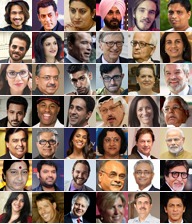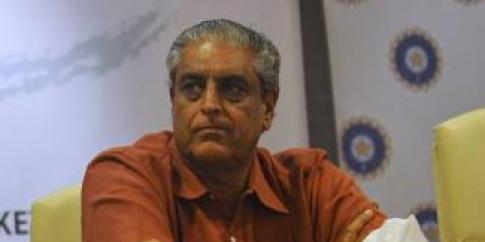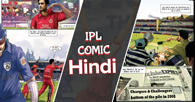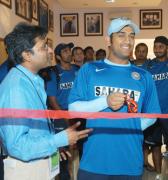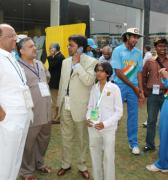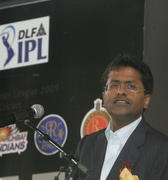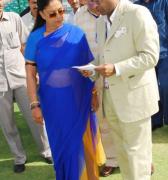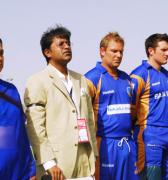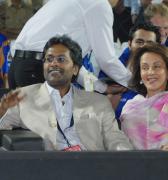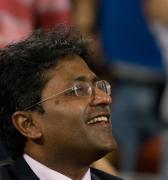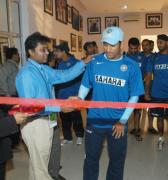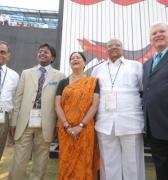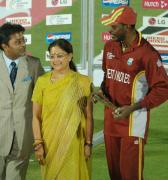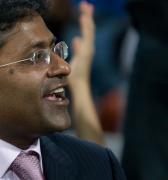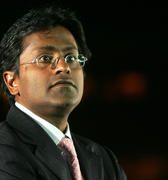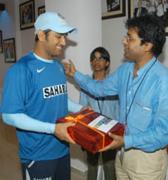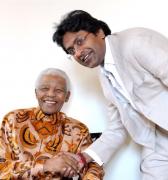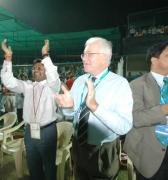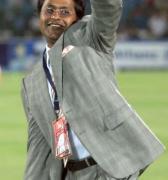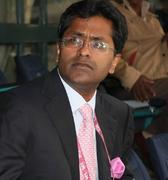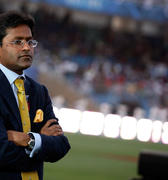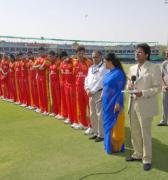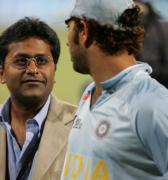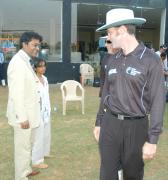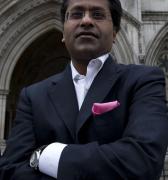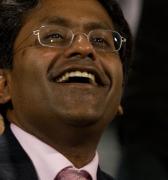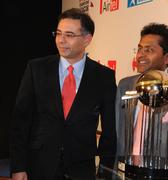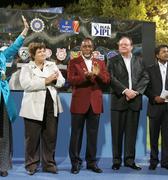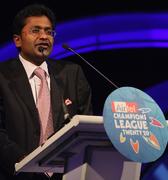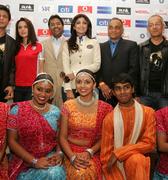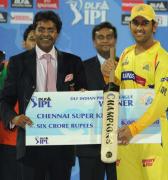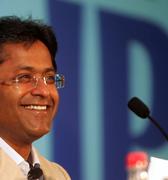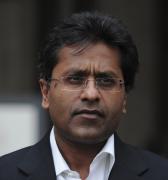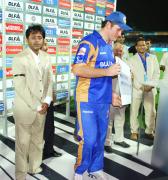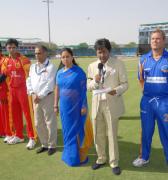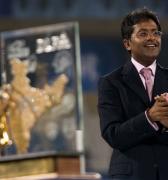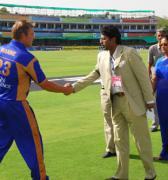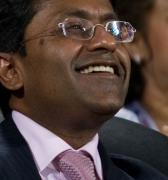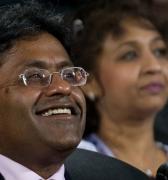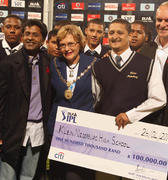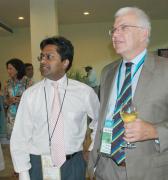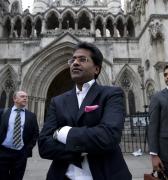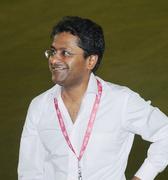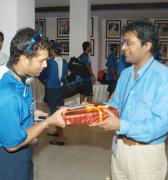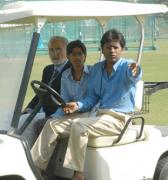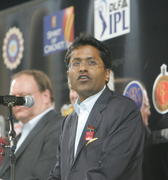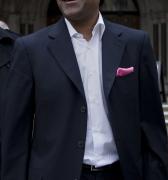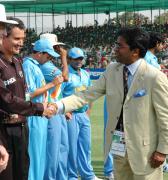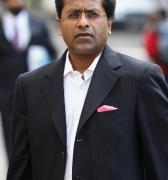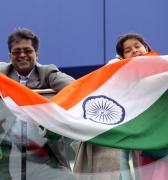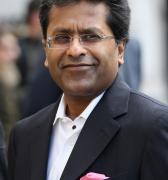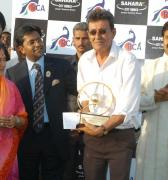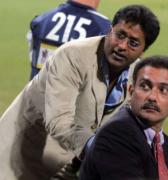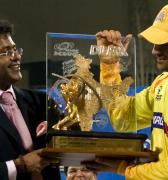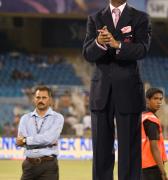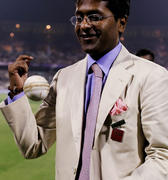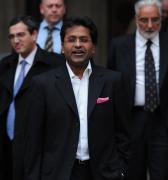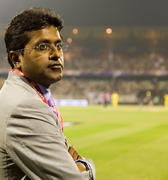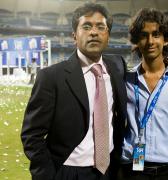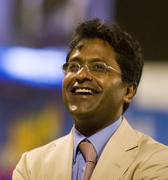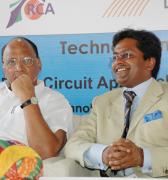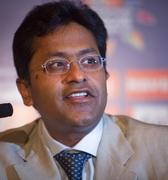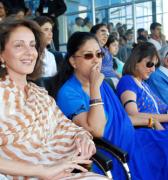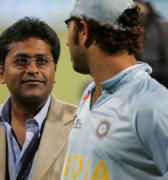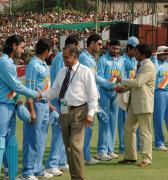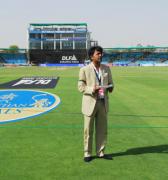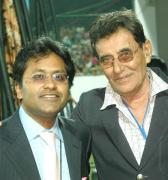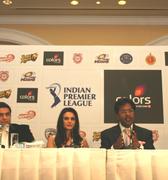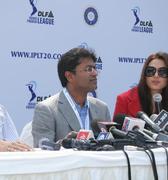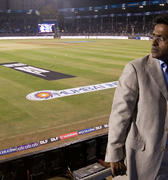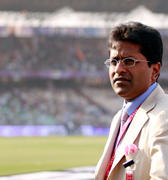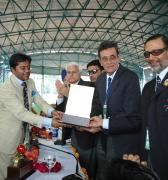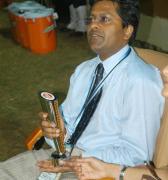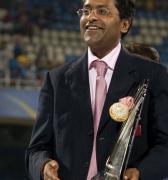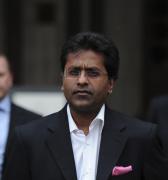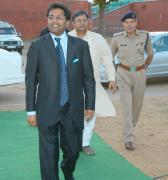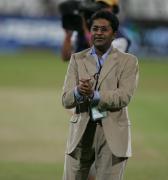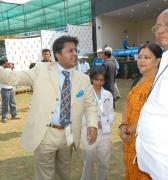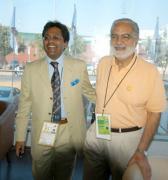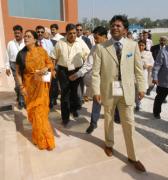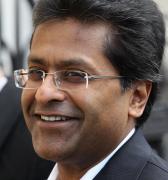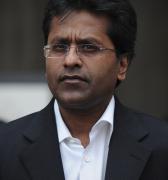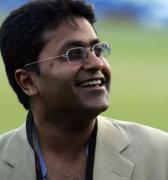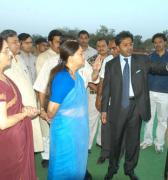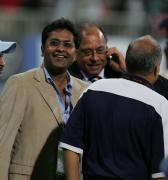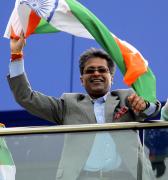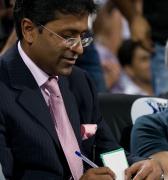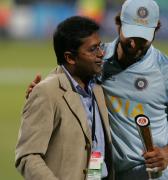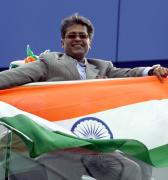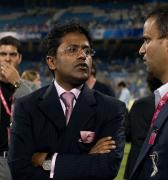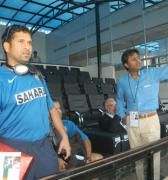BCCI gets criticised despite doing well: Jagdale
Sanjay Jadgale spoke about a variety of topics ranging from the effect of the Greg Chappell era on Indian cricket to the BCCI’s present condition
Those who have seen Sanjay Jagdale from close quarters believe that he is the man for all seasons. From being one of the leading cricketers to becoming the secretary of the Board of Control for Cricket in India (BCCI) — Jagdale has seen it all.
But it’s not too often that he speaks about some of the controversial episodes of Indian cricket. Speaking to Sportstar at the headquarters of the Madhya Pradesh Cricket Association (MPCA) here on Thursday afternoon, the former national selector opened his heart out on a range of topics. From the effect of Greg Chappell era to the BCCI’s present condition — Jagdale said it all. Edited Excerpts:
From being a cricketer to a national selector, and then taking charge as the secretary of BCCI — you have donned many hats. Which one has been the most challenging?
I think all the profiles have been challenging but I have enjoyed being a selector and a coach. I have also enjoyed being an administrator. Playing cricket has always been enjoyable, so has been watching the game. But to be honest, I enjoyed being the selector more because it was a phase when we were looking for a younger team under a new foreign coach — John Wright.
It was an opportunity for me as well to learn a lot of things by interacting with Wright, and then with other foreign coaches like Gary Kirsten, Greg Chappell, Duncan Fletcher. They have all played important roles, especially Wright. He played an important role in changing Indian cricket.
But then, how do you see the decision of going back to appointing an Indian coach again?
It was bound to happen. We had to get back to Indian coaches because you can’t keep on relying on foreign coaches. There are so many players who are capable and who have played and developed under these foreign coaches.
They have known the changes in the game, now we have Kumble and Ravi: both have been successful as cricketers and coaches. Ajit Wadekar was also successful in such roles. Now we know what changes are required. The Indian cricketers know because they have played along or under John Wright.
Back then, why was it necessary to go for a foreign coach? You had the likes of Kapil Dev or an Anshuman Gaekwad…
The biggest changes brought in by foreign coaches was physical fitness and the attitude. What I saw as the biggest change under Wright was the way he would prepare the team. Right from conducting nets to talking to players, or giving feedback to players. Sourav (Ganguly) and Wright had an excellent team, they might have been having some differences, but it was a perfect team.
Did they really have a difference?
That I don’t know. I heard Sourav saying something. But differences of opinion may happen. There’s nothing wrong in it, it is all about healthy difference of opinion.
But then came the Chappell era, which many refer to as a very bad phase of Indian cricket…
It was definitely a bad phase that Indian cricket went through. During that phase, I was not a selector. I came back in 2006, but there was lack of communication at that time. I travelled with the team in the World Cup and in Sri Lanka as the manager, it was very sad to see the lack of communication.
There was no communication between Chappell and some of the players. There was total lack of confidence in the team, so it was an unfortunate phase, but we quickly came out of it. This is the strength of Indian cricket, it has a terrific team, has terrific players. I am a student of history of the game, and I feel the phase between 2000 and 2005 Indian batting line-up was as exciting as any batting line-up in the history.
We had terrific variety, quality. Everybody was different. Right from Virender Sehwag to Rahul Dravid or Sachin or Sourav, VVS — you will never regret paying to watch them. It was real quality and I consider myself lucky to be a part of it, watching so much cricket at that time.
But looking back, what do you think had gone wrong?
It was lack of communication. As manager, I tried my best, but not much came out of it. It was definitely lack of communication.
Chappell came in at a time when Jagmohan Dalmiya was at the helm of the BCCI. But by the time, Chappell settled down, Dalmiya was outvoted. Do you think that led to everything?
Mr Dalmiya was very much there when Greg Chappell was appointed. But I think things could have been handled better. It was sheer lack of communication and confidence. I was a selector for one year from 2006. I was there when Kirsten came. I had more time with Wright, and two years with Chappell as manager and selector.
How tough was it to motivate the team post Greg Chappell?
Gary took over from Chappell. I will credit him. When Anil Kumble took over as a captain we had some good series against Pakistan and Australia in 2007-08. Anil was confident and aggressive. He handled the team very well. The credit should go to the players.
How did the team regroup itself leaving behind the mistrust that the Chappell era had created?
Individuals always had differences of opinion but they were matured enough to play as a team. It was a combined effort. When Rahul Dravid resigned after 2007 England tour, I was surprised, I was a selector then. He had spoken to me three days before resigning, but he didn’t say a word then, rather he spoke about India A squad. After three days, BCCI chief Mr (Sharad) Pawar asked me, “Mr Jagdale, why did Rahul resign?”
I had no answer because I did not know about it. Later, Rahul contributed as a batsman. He was a great player.
But there’s still a belief that the seniors like Sourav, Sachin and Rahul were given signals by the Board to quit?
Nobody asked them to go. Rahul resigned on his own. I can’t recollect anybody giving any signals to Rahul, Sourav. They always had pride and self-respect, they knew when to retire. I don’t think I was capable to advise them.
Coming back to coaches. Having worked with so many of them, who would you rate the best?
John Wright. It was he who changed the things. Luckily I was part of the selection committee. Sourav and he gelled well, so the credit must go to the captain and Sourav was always hungry to perform and was aggressive. Both John and Sourav had same feeling and same thought process.
One was cool, the other one was aggressive, but the combination was great. John also changed the cricketing culture. You can see the fitness level in India now. Luckily BCCI built a team of own physios and trainers now we are on our own now.
Do you think that the Chappell era backfired because both Ganguly and Chappell were two similar thinking people having similar attitude?
Really, I don’t want to get into it. It was bit of a personal issue because Sourav was very much disturbed and everyone knows about it. It is an unfortunate phase and there was lack of trust between each other. That led to everything.
Let’s talk a bit about the present scenario. How well is BCCI functioning at present?
Things are handled very nicely by the BCCI. The BCCI gets a lot of bad media but then they ignore the good work done by the Board. Cricket has become so popular and a lot of credit should go to the BCCI.
There is a lot of money, the credit should go to the people. It could not have happened without the infrastructure provided by the BCCI. One bad event in IPL, and you can’t generalise. You can’t say that everything is bad. Having been part of the BCCI in the past, I feel if you compare it with other sports bodies, BCCI is far, far ahead. They have a system.
Yes, if somebody has done something wrong, he should be punished. That is okay, but you can’t say that BCCI has done nothing and is a corrupt body. This is not right. How can you say that?
Do you think that the BCCI should have followed all the recommendations made by the Supreme Court?
If there is a recommendation, it should be implemented why not? I am not commenting on Lodha committee things since the matter is under sub-judice. BCCI has done a lot of good; you cannot become World No.1 in all categories just by being a bad association. Credit should go to the players, but then, the BCCI and the State bodies have played a major role in helping them by providing opportunities.
Back in 2013, you and Ajay Shirke left the BCCI. Now, do you think that could have been avoided?
I never regretted leaving the BCCI then. At that point of time, I was not happy with things, so I decided not to carry on. I never regretted leaving but there were areas where I wanted to do some more work. I started preparing good cricketing wickets, which is still continued and I am happy to see it improve. I would have gone to junior cricket also.
Looking at how things are today, do you think that there is no clarity in the BCCI?
In the last two years, there is no clarity in the BCCI. But everything is in sub-judice so just can’t comment on that. It’s an unfortunate fate that there is no clarity in the State associations and the BCCI. The best thing is that it has not affected the game. The administrators may have to go but the game should continue and that exactly has happened. This is a healthy sign. The teams are doing well and the system is still working.
Being a former selector, how do you see the Indian team shaping up for the 2019 World Cup?
The team is almost in shape now. The young guys should get more exposure. We have a perfect combination of experience and youth. Only thing is that the new guys who have not played much be given more exposure. The more they play, they will get used to the conditions as well. I want to see this Indian team doing well outside the sub-continent. Next year is going to be very crucial for the team.
Do you think it’s time the State associations accepted the Supreme Court recommendations?
If it is recommended and if the Supreme Court tells everyone to follow it, then we should follow it. There is nothing wrong in it. Why not implement it? If Supreme Court says then everybody has to follow it. There is no reason why they should not.
Lastly, where do you see Indian cricket and cricket administration in the next five years?
I can’t comment on the administration part since the matter is in sub–judice. But I see a bright future for Indian cricket. This country has a lot of bright young talents and lot of facilities. Our players are aggressive at the younger level. They are confident and there’s no reason why they can’t do well.
Those who have seen Sanjay Jagdale from close quarters believe that he is the man for all seasons. From being one of the leading cricketers to becoming the secretary of the Board of Control for Cricket in India (BCCI) — Jagdale has seen it all.
But it’s not too often that he speaks about some of the controversial episodes of Indian cricket. Speaking to Sportstar at the headquarters of the Madhya Pradesh Cricket Association (MPCA) here on Thursday afternoon, the former national selector opened his heart out on a range of topics. From the effect of Greg Chappell era to the BCCI’s present condition — Jagdale said it all.
Edited Excerpts:
From being a cricketer to a national selector, and then taking charge as the secretary of BCCI — you have donned many hats. Which one has been the most challenging?
I think all the profiles have been challenging but I have enjoyed being a selector and a coach. I have also enjoyed being an administrator. Playing cricket has always been enjoyable, so has been watching the game. But to be honest, I enjoyed being the selector more because it was a phase when we were looking for a younger team under a new foreign coach — John Wright.
It was an opportunity for me as well to learn a lot of things by interacting with Wright, and then with other foreign coaches like Gary Kirsten, Greg Chappell, Duncan Fletcher. They have all played important roles, especially Wright. He played an important role in changing Indian cricket.
But then, how do you see the decision of going back to appointing an Indian coach again?
It was bound to happen. We had to get back to Indian coaches because you can’t keep on relying on foreign coaches. There are so many players who are capable and who have played and developed under these foreign coaches.
They have known the changes in the game, now we have Kumble and Ravi: both have been successful as cricketers and coaches. Ajit Wadekar was also successful in such roles. Now we know what changes are required. The Indian cricketers know because they have played along or under John Wright.
Back then, why was it necessary to go for a foreign coach? You had the likes of Kapil Dev or an Anshuman Gaekwad…
The biggest changes brought in by foreign coaches was physical fitness and the attitude. What I saw as the biggest change under Wright was the way he would prepare the team. Right from conducting nets to talking to players, or giving feedback to players. Sourav (Ganguly) and Wright had an excellent team, they might have been having some differences, but it was a perfect team.
Did they really have a difference?
That I don’t know. I heard Sourav saying something. But differences of opinion may happen. There’s nothing wrong in it, it is all about healthy difference of opinion.
But then came the Chappell era, which many refer to as a very bad phase of Indian cricket…
It was definitely a bad phase that Indian cricket went through. During that phase, I was not a selector. I came back in 2006, but there was lack of communication at that time. I travelled with the team in the World Cup and in Sri Lanka as the manager, it was very sad to see the lack of communication.
There was no communication between Chappell and some of the players. There was total lack of confidence in the team, so it was an unfortunate phase, but we quickly came out of it. This is the strength of Indian cricket, it has a terrific team, has terrific players. I am a student of history of the game, and I feel the phase between 2000 and 2005 Indian batting line-up was as exciting as any batting line-up in the history.
We had terrific variety, quality. Everybody was different. Right from Virender Sehwag to Rahul Dravid or Sachin or Sourav, VVS — you will never regret paying to watch them. It was real quality and I consider myself lucky to be a part of it, watching so much cricket at that time.
But looking back, what do you think had gone wrong?
It was lack of communication. As manager, I tried my best, but not much came out of it. It was definitely lack of communication.
Chappell came in at a time when Jagmohan Dalmiya was at the helm of the BCCI. But by the time, Chappell settled down, Dalmiya was outvoted. Do you think that led to everything?
Mr Dalmiya was very much there when Greg Chappell was appointed. But I think things could have been handled better. It was sheer lack of communication and confidence. I was a selector for one year from 2006. I was there when Kirsten came. I had more time with Wright, and two years with Chappell as manager and selector.
How tough was it to motivate the team post Greg Chappell?
Gary took over from Chappell. I will credit him. When Anil Kumble took over as a captain we had some good series against Pakistan and Australia in 2007-08. Anil was confident and aggressive. He handled the team very well. The credit should go to the players.
How did the team regroup itself leaving behind the mistrust that the Chappell era had created?
Individuals always had differences of opinion but they were matured enough to play as a team. It was a combined effort. When Rahul Dravid resigned after 2007 England tour, I was surprised, I was a selector then. He had spoken to me three days before resigning, but he didn’t say a word then, rather he spoke about India A squad. After three days, BCCI chief Mr (Sharad) Pawar asked me, “Mr Jagdale, why did Rahul resign?”
I had no answer because I did not know about it. Later, Rahul contributed as a batsman. He was a great player.
But there’s still a belief that the seniors like Sourav, Sachin and Rahul were given signals by the Board to quit?
Nobody asked them to go. Rahul resigned on his own. I can’t recollect anybody giving any signals to Rahul, Sourav. They always had pride and self-respect, they knew when to retire. I don’t think I was capable to advise them.
Coming back to coaches. Having worked with so many of them, who would you rate the best?
John Wright. It was he who changed the things. Luckily I was part of the selection committee. Sourav and he gelled well, so the credit must go to the captain and Sourav was always hungry to perform and was aggressive. Both John and Sourav had same feeling and same thought process.
One was cool, the other one was aggressive, but the combination was great. John also changed the cricketing culture. You can see the fitness level in India now. Luckily BCCI built a team of own physios and trainers now we are on our own now.
Do you think that the Chappell era backfired because both Ganguly and Chappell were two similar thinking people having similar attitude?
Really, I don’t want to get into it. It was bit of a personal issue because Sourav was very much disturbed and everyone knows about it. It is an unfortunate phase and there was lack of trust between each other. That led to everything.
Let’s talk a bit about the present scenario. How well is BCCI functioning at present?
Things are handled very nicely by the BCCI. The BCCI gets a lot of bad media but then they ignore the good work done by the Board. Cricket has become so popular and a lot of credit should go to the BCCI.
There is a lot of money, the credit should go to the people. It could not have happened without the infrastructure provided by the BCCI. One bad event in IPL, and you can’t generalise. You can’t say that everything is bad. Having been part of the BCCI in the past, I feel if you compare it with other sports bodies, BCCI is far, far ahead. They have a system.
Yes, if somebody has done something wrong, he should be punished. That is okay, but you can’t say that BCCI has done nothing and is a corrupt body. This is not right. How can you say that?
Do you think that the BCCI should have followed all the recommendations made by the Supreme Court?
If there is a recommendation, it should be implemented why not? I am not commenting on Lodha committee things since the matter is under sub-judice. BCCI has done a lot of good; you cannot become World No.1 in all categories just by being a bad association. Credit should go to the players, but then, the BCCI and the State bodies have played a major role in helping them by providing opportunities.
Back in 2013, you and Ajay Shirke left the BCCI. Now, do you think that could have been avoided?
I never regretted leaving the BCCI then. At that point of time, I was not happy with things, so I decided not to carry on. I never regretted leaving but there were areas where I wanted to do some more work. I started preparing good cricketing wickets, which is still continued and I am happy to see it improve. I would have gone to junior cricket also.
Looking at how things are today, do you think that there is no clarity in the BCCI?
In the last two years, there is no clarity in the BCCI. But everything is in sub-judice so just can’t comment on that. It’s an unfortunate fate that there is no clarity in the State associations and the BCCI. The best thing is that it has not affected the game. The administrators may have to go but the game should continue and that exactly has happened. This is a healthy sign. The teams are doing well and the system is still working.
Being a former selector, how do you see the Indian team shaping up for the 2019 World Cup?
The team is almost in shape now. The young guys should get more exposure. We have a perfect combination of experience and youth. Only thing is that the new guys who have not played much be given more exposure. The more they play, they will get used to the conditions as well. I want to see this Indian team doing well outside the sub-continent. Next year is going to be very crucial for the team.
Do you think it’s time the State associations accepted the Supreme Court recommendations?
If it is recommended and if the Supreme Court tells everyone to follow it, then we should follow it. There is nothing wrong in it. Why not implement it? If Supreme Court says then everybody has to follow it. There is no reason why they should not.
Lastly, where do you see Indian cricket and cricket administration in the next five years?
I can’t comment on the administration part since the matter is in sub–judice. But I see a bright future for Indian cricket. This country has a lot of bright young talents and lot of facilities. Our players are aggressive at the younger level. They are confident and there’s no reason why they can’t do well.
(Courtesy: Sportstar)




